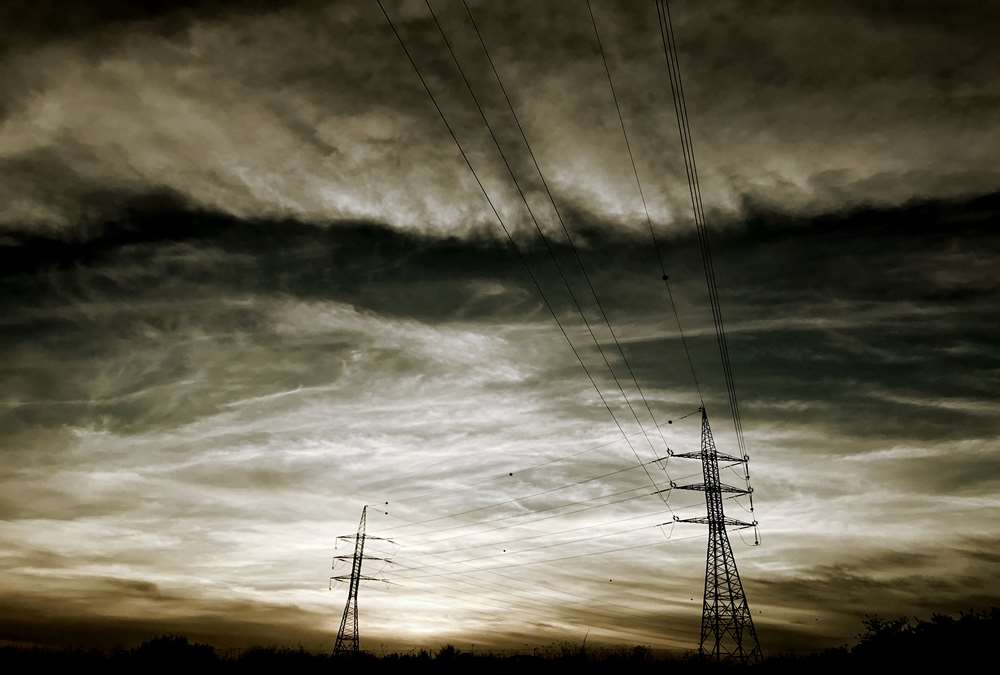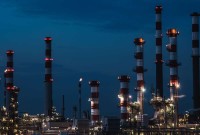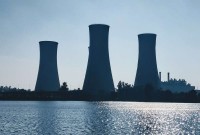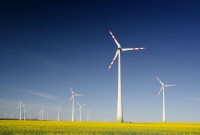- Home
- Business Processes
- Industry Knowledge
- Aerospace Industry
- Automotive Industry
- Banking Domain
- BFSI Industry
- Consumer/ FMCG Industry
- Chemicals Industry
- Engineering & Construction
- Energy Industry
- Education Domain
- Finance Domain
- Hospitality Domain
- Healthcare Industry
- Insurance Domain
- Retail Industry
- Travel and Tourism Domain
- Telecom Industry
- Leadership Skills
- eLearning
- Home
- Domain Knowledge
- Energy Industry
- Importance of Energy Industry
Importance of Energy Industry
Energy is essential to life and the key to human progress. Energy is the common link between the living and non-living realms of the universe, and thus provides an organizing intellectual theme for diverse disciplines. Energy growth is directly linked to well-being and prosperity across the globe. Meeting the growing demand for energy in a safe and environmentally responsible manner is a key challenge.
Energy generation and use are strongly linked to all elements of sustainable development: economic, social, and environmental. Having in mind that modern society consumes a huge amount of energy, the energy industry is very important almost everywhere in the world.
Improvement in Quality of Human Life
Every product that we use takes energy to work — from automobiles to food, buildings, appliances, etc. The global primary energy demand has risen by 50% since 1990. By 2035, the energy demand will probably be much higher than now. The world needs more energy, and we have to be aware of this. The history of human development rests on the availability and use of energy, the transformation from the early use of fire and animal power that improved lives, to the present world with the use of electricity and clean fuels for a multitude of purposes. This progress built on basic scientific discoveries, such as electromagnetism and the inventions of technologies such as steam engines, light bulbs, and automobiles.
For millennia, societies depended on resources provided by solar energy (radiation stored as vegetation), wind (a type of solar energy), animal and human energy, water, and fossil fuels. The advent of mechanized labor and its synchronized production demands transformed the lives of workers previously tuned to seasonal energy rhythms. The history of human development rests on the availability and use of energy, the transformation from the early use of fire and animal power that improved lives, to the present world with the use of electricity and clean fuels for a multitude of purposes.
Growth of Nations
Modern society consumes large amounts of fuel, and the energy industry is a crucial part of the infrastructure and maintenance of society in almost all countries. The use of energy has been a key in the development of human society by helping it to control and adapt to the environment. Managing the use of energy is inevitable in any functional society. In the industrialized world, the development of energy resources has become essential for agriculture, transportation, waste collection, information technology, communications that have become prerequisites of a developed society.
Economic Growth
Technological innovations during the early 18th century resulted in enormous growth in the economic wealth and sociopolitical power of nation-states. Sustained growth in Western Europe and Britain spread via exploration and trade. The competition to colonize and control the raw natural resources in the Caribbean and the Americas, in conjunction with imperialism in Indochina, the Mideast, and the Mediterranean, changed the global energy map. The energy is rapidly growing and has become one of the most important things for us to have a normal life.
Related Links
You May Also Like
-
This is the traditional industry based on the collection and distribution of firewood, the use of which, for cooking and heating, is particularly common in poorer countries. People have needed energy in some form for their everyday lives for hundreds of years. Primitive man (about 1 million years B.C.) used fire to cook food and over the period of human development. The energy industry was probably born the day when our ancient ancestors first discovered that they could keep themselves warm and cook food with fire.
-
The modern electric power industry covers the generation, transmission, distribution, and sale of electric power to the general public and industry. The commercial distribution of electric power started in 1882 when electricity was produced for electric lighting. In the 1880s and 1890s, growing economic and safety concerns lead to the regulation of the industry. What was once an expensive novelty limited to the most densely populated areas, reliable and economical electric power has become an essential aspect for normal operation of all elements of developed economies!
-
Nuclear power is the use of sustained nuclear fission to generate heat and electricity. Nuclear power plants provide about 6% of the world's energy and 13–14% of the world's electricity, with the U.S., France, and Japan together accounting for about 50% of nuclear-generated electricity. In 2007, the IAEA reported there were 439 nuclear power reactors in operation in the world, operating in 31 countries.
-
Energy is essential to life and the key to human progress. Energy is the common link between the living and non-living realms of the universe, and thus provides an organizing intellectual theme for diverse disciplines. Energy growth is directly linked to well-being and prosperity across the globe. Meeting the growing demand for energy in a safe and environmentally responsible manner is a key challenge.
-
The history of human culture can be viewed as the progressive development of new energy sources. Developments in the energy industry have resulted in unparalleled transformations of society. It is because of the availability of energy sources that humans have been able to increase comfort, longevity, and affluence, as well as their population apart from unprecedented growth. Each energy fuel alternative has also impacted different combinations of economic, political, technological, social, and environmental attributes.
-
These industries include petroleum industries (oil companies, petroleum refiners, fuel transport and end-user sales at gas stations) coal industries (extraction and processing), and the natural gas industries (natural gas extraction, and coal gas manufacture, as well as distribution and sales). Most of the energy we use today is being obtained from coal and petroleum. We also have nuclear power plants. But these energy sources are limited as only finite quantities of coal; petroleum and gas exist underground or in oceans.
-
The energy industry is going through the biggest transformation in history. The impact of energy production and consumption on the environment is varied and mankind has started understanding the importance of improving energy efficiency and ensuring energy security for all. The current trend is to explore sustainable energy options that can provide power to future generations.
-
Most of the energy we use today is being obtained from coal and petroleum. There are some sources of energy, which can be used repeatedly without exhausting them, such as, energy from the sun, energy from a water-fall, wind energy, tidal energy. This industry comprises of alternative energy and sustainable energy companies, including those involved in hydroelectric power, wind power, and solar power generation, and the manufacture, distribution, and sale of alternative fuels.
-
The energy is comprised of companies involved in the exploration and development of oil or gas reserves, drilling, and refining and integrated power companies working on renewable and coal energy. This industry locates fuel resources, processes them, and finally involved in the production and sale of energy. Access to affordable energy is fundamental to human development, and economic growth as without electricity and power, human opportunities are significantly constrained.
Explore Our Free Training Articles or
Sign Up to Start With Our eLearning Courses

About Us
Learning
© 2023 TechnoFunc, All Rights Reserved









